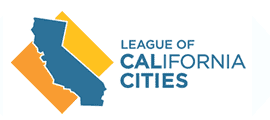 The League of California Cities is proactively advancing cities’ interests by working with lawmakers to introduce bills that target common issues facing cities. Cal Cities is currently sponsoring eight bills that collectively focus on public safety concerns, public meetings, council member pay and fiscal sustainability.
The League of California Cities is proactively advancing cities’ interests by working with lawmakers to introduce bills that target common issues facing cities. Cal Cities is currently sponsoring eight bills that collectively focus on public safety concerns, public meetings, council member pay and fiscal sustainability.
Many of these bills have placeholder language and are awaiting amendments.
Repeat theft and emergency medical services
Retailers and police departments have reported an increase in repeated — sometimes high-profile — organized retail crime. AB 1708 (Muratsuchi) would reverse that trend by reforming Proposition 47 to increase accountability for serial theft and encourage responsive intervention programs that divert people away from both crime and prison.
Approved in 2014, Prop. 47 recategorized some nonviolent offenses, such as shoplifting, as misdemeanors. If signed into law, the changes proposed by AB 1708 would be placed on the 2024 statewide ballot for voter approval.
AB 1708 is co-sponsored by the California Police Chiefs Association and the California Retailers Association. The bill currently has placeholder language and is awaiting amendments.
Cal Cities is also sponsoring AB 1168 (Bennett). Once amended, the measure would clarify the Legislature’s intent regarding a local jurisdiction’s right to deliver prehospital emergency medical services (EMS). AB 1168 would reconcile City of Oxnard v. County of Ventura, which ruled that Oxnard lost its authority to provide prehospital EMS after signing a joint powers authority agreement with the county.
AB 1168 is supported by the California Professional Firefighters Association and the California Fire Chiefs Association.
Brown Act and council member pay
Cal Cities is sponsoring two Ralph M. Brown Act bills and a measure that would reform council member pay. Two of the measures would reduce barriers to city councils and certain other legislative bodies.
AB 557 (Hart), would eliminate the sunset provisions in AB 361 (R. Rivas, 2021). The Rivas measure allows cities to meet remotely during proclaimed states of emergency under modified Brown Act requirements. The Hart bill would also provide greater flexibility for agencies that meet on a fixed date every month by extending the SB 361 renewal period to 45 days.
AB 817 (Pacheco) — pending amendments — would allow non-decision-making legislative bodies currently governed by the Brown Act, such as advisory bodies and commissions, to participate in two-way virtual teleconferencing without posting their physical location.
The teleconference flexibility granted to cities because of COVID-19 noticeably reduced barriers to participation. Residents who were usually not able to participate due to time, distance, or mandatory physical participation requirements were able to attend public meetings. AB 817 would maintain that access for certain legislative bodies, creating greater access to leadership opportunities and providing more diverse input on critical community proposals.
SB 329 (Dodd) would boost participation and diversity among city councils by allowing general law cities to adjust city council pay caps for inflation based on the California Consumer Price Index. Currently, in general law cities, city councils may vote to receive a salary, not to exceed limits based on population size provided in state law. This limit has not been increased since 1984, despite inflation rising over 300% during that time.
On-time and on-budget public projects
Cal Cities is sponsoring two measures that would protect and expand cities’ ability to use design-build procurement processes. These processes allow a city to contract with a single entity to design and construct a project at a fixed price. Contractors are also given more flexibility over project design, materials, and construction methods. This encourages greater collaboration between cities, designers, and contractors, which reduces delays, mitigates risks early, and keeps costs low.
The progressive design-build process starts this collaboration during the earliest stages of project development and produces cost estimates at different phases of the decision process. This results in greater benefits, including fewer change orders.
Although utilization of the design-build process is becoming more common, cities can only employ it until Jan. 1, 2025. Moreover, California law restricts the progressive design-build process to water projects over $5 million in total costs
Using both processes can help advance vital infrastructure projects on time and on budget. Persistent labor gaps, increased building material costs, and strict use-it-or-lose-it timelines for federal dollars mean that even a modest project delay can noticeably increase a project’s cost. With the Bipartisan Infrastructure Law in particular, cities have a short period of time to access and use federal funding.
AB 400 (Rubio) would permanently allow local governments to use design-build processes. SB 706 (Caballero) would allow cities to use progressive design-build for all public projects over $5 million.
Streamlined grant applications and technical assistance
Cal Cities is working with Assembly Member Brian Maienschein on a bill that would coordinate and align local government assistance resources from the state for various environmental grant programs. The bill would convene a statewide, cross-agency workgroup to help develop a coordinated management system. The bill will be in print shortly.
A uniform and streamlined application process would allow cities to effectively and equitably access funding opportunities. Most state grant programs have unique grant application processes and equally varied local assistance programs are scattered across state departments. Applying for grants is further complicated by a lack of staffing capacity and experience at the local level.
Likewise, centralizing local government assistance resources and developing a coordinated system to manage available funding would deliver the maximum number of projects as efficiently and equitably as possible.
How to get involved
The 2023 legislative season will kick off in earnest next week when policy committee meetings start. These small, focused meetings provide new opportunities for city officials to communicate their concerns. Cal Cities Advocate will provide regular information — including sample letters of support and opposition — on the top bills facing cities, any notable legislative changes, and how to make your city’s voice heard.
To learn about the bills with the biggest impacts to cities this session, register for the 2023 Legislative Briefing.





